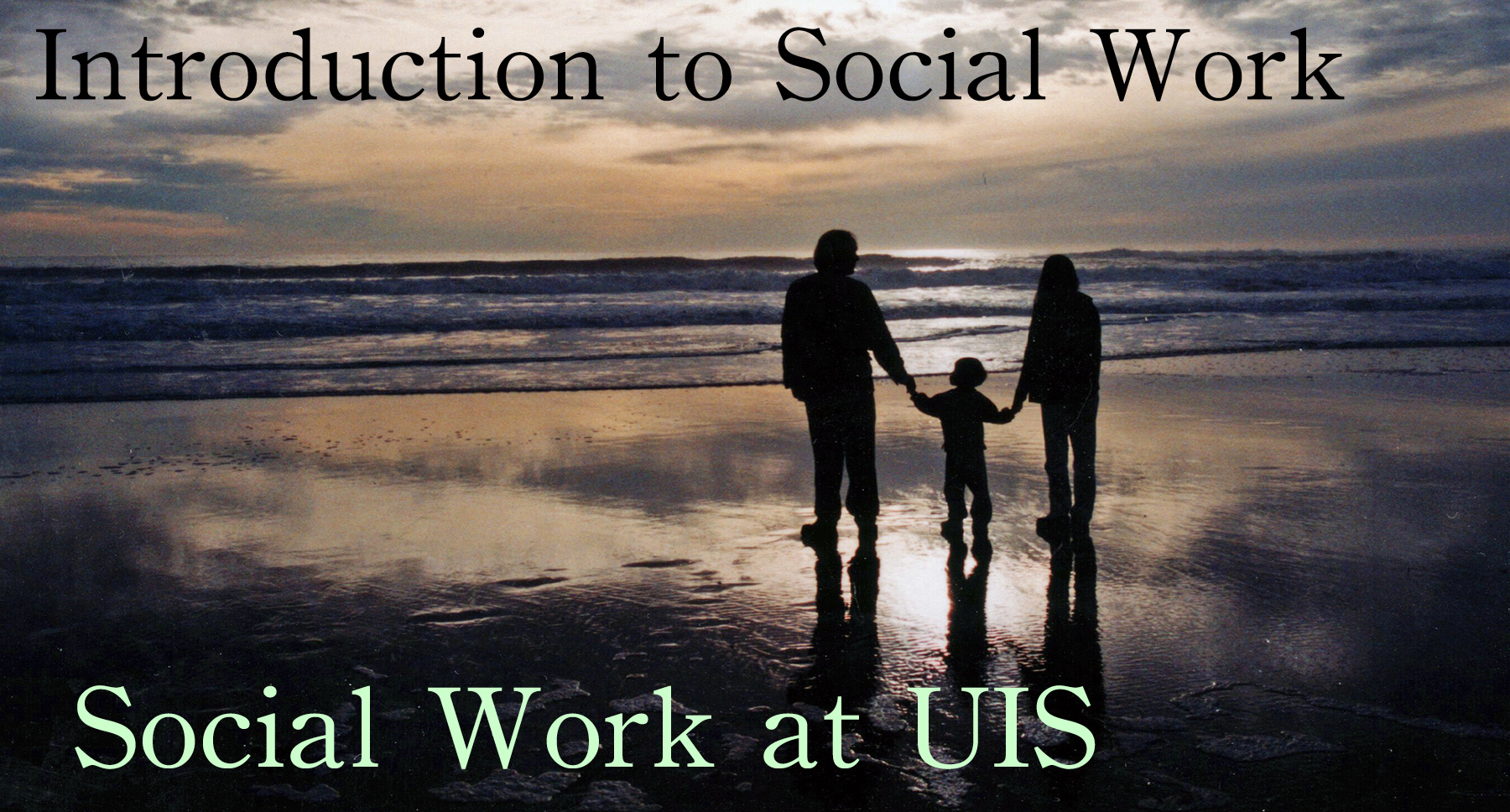How should you write your paper, and how will it be evaluated?
Steps to writing your paper:
- 1 HOUR: Think about various topics related to social work, and choose something of greatest interest to you; consider social work broadly, so that almost any topic will be appropriate if it relates to issues of social work practice, social work values, problems in society addressed by social work, social work theories and frameworks, skills used by social workers, situations faced by social workers, issues in work of social workers, and all sorts of issues broadly connected with social work.
- 1 HOUR: Download and use Mendeley, possibly signing up for this service if you haven't already done so. For sources you find in PDF format, you can download the PDF files and save them in your Mendeley application/account. If sources don't have PDF or Word or HTML formats, you can just write out some notes and bibliographic information in an entry in Mendeley.
- 2 HOURS: Use the Internet to find current information about your topic; look for articles in professional organization websites, think tank study papers, position papers written by advocates, reports, and popular media. Check the quality of your sources. See if any expert names or authors of studies are mentioned.
- 2 HOURS: Use the UIS library and its databases to find peer-reviewed or scholarly journal articles, book chapters, books, and other academic sources. If you need help with this, contact your professor, because he loves to help students search for good sources, and he will be delighted to look into your topic and see what good sources he can find.
- 1 Hour: Decide whether you want to write a descriptive paper, an analytical paper, or a paper with a thesis. In a descriptive paper the point is to get good information to accurately describe a situation. In an analytical paper your point is to explain how and why something is happening or something is done. You might compare explanations or theories. You might be writing about ideas about how something is a good solution, or how something causes something else, or how a particular thing is likely or unlikely to solve a problem or improve a situation. In a paper with a thesis, you will be organizing your writing to establish that some sort of controversial position or claim about truth is accurate or most likely to be useful. You might also be answering a question, but the question would be about something for which there are several plausible answers, and you would be arguing that a particular type of answer is better than others.
- 1 HOUR: Do a 1-hour free-writing session where you write your ideas and points you want to make in your paper. Do not use your critical thinking to analyze what you are writing or evaluate it. Just keep ideas flowing through your hands into the pen or pencil or keyboard as you string together sentences and words related to what you have been reading and thinking. Some of what you write might eventually be used in your first draft, but at this point you are totally brain-storming and using creativity to get ideas on paper/hard drives, so that you can build a first draft with some good idea of where you want to go.
- 2 to 3 HOURS: Search websites and academic databases to gather facts or information you find that you are likely to need, based on your topic, the type of paper you will write, and the ideas that came out when you did your one-hour free-writing exercise. Five things to consider: is their a professional association or a special interest group that will have a website with reports related to your topic, or information about the situation you are investigating? Often, there will be a social work disciplinary association (e.g., social workers in oncology units; social workers in private practice, social workers in schools, social workers in child protective services, etc.) with good information. There are certain think-tanks and organizations that investigate many issues related to social work (e.g., the Congressional Budget Office, the Brookings Institution, the Pew Charitable Trust, the Center on Budget and Policy Priorities, the Manhattan Institute, the American Enterprise Institute, the Center for Economic and Policy Research, the Center for Social Development, etc.). You can also find position papers and reports from advocacy groups like the National Alliance on Mental Illness, The National Children's Alliance, Repairers of the Breach, the National Alliance to End Homelessness, the National Coalition Against Domestic Violence, etc.) Be sure to check if there are any laws or state or federal plans or policies related to your subject. For example, you might want to see what the Illinois Commission on Poverty Eliminationa nd Economic Security is up to, or what the Illinois Department of Early Education, or the Substance Abuse and Mental Health Services Administration, or the Child Welfare Information Gateway has to report.
All of these initital steps listed above should be completed by the end of the fifth week of the semester (before our sixth class session meeting)
The following steps should be completed between the fifth and eighth weeks of the semester:
- 1 HOUR: Write an outline of your paper. Try to come up with a topic sentence for each paragraph. Typically, a paper might need 12-20 paragraphs.
- 4 HOURS: Write a rough draft or first draft of the paper, using your free-writing exercise and your outline to guide you.
- 1 HOUR: edit your first draft to correct spelling and grammar, improve style, and clarify the organization of sentences, paragraphs, and the overall paper. Try to get in the citations and make sure that they are in APA style (Mendeley will be very helpful and save you hours of time on this).
The following steps should be taken in the ninth and tenth week of the semester (and maybe in the eleventh week):
- 2 HOURS: Give your paper to a peer or friend, and have them read it, and ask them for suggestions and edits. You may have a friend or classmate in this class who will do this for you, and you might return the favor and do your own editing and commenting on a draft your classmate gives you.
- 1 HOUR: Revise and edit your paper based on the comments your friend or peer gives gives you.
- 10 minutes: Upload your paper as a “first draft” for your professor to read and comment on. This is done in the 11th or 12th week of the semester.
The following steps should be taken in the thirteenth and fourteenth week of the semester:
- 3 HOURS: complete your paper with edits and reorganization and so forth, based on the feedback you receive from your professor. You will receive feedback from your professor in the twelfth or thirteenth week of the semester, giving you the 14th week of the semester to make additional edits and revisions based on such feedback.
I am expecting students to put 20 to 24 hours of time into writing their paper. You will see in each session schedule some time alloted for you to work on your paper, and if you follow the steps above, according to the schedule in the weekly sessions, you will complete your first draft of the paper in the 9th session of the class, and complete the entire paper in the 13th session of class.
Schedule for completing your paper on time:
- First week of the semester: spend an hour thinking about your topic, and pick a topic. Then spend about 90 minutes gathering sources and reading what you can find. Use news and journalistic articles, reports or papers or websites from relevant organizations, and search through academic journal databses to find sources.
- Second week of the semester: spend about 90 minutes to find current articles and reports and information about your paper topic, and read what you have gathered.
- Third week of the semester: Spend two to three hours getting peer-reviewed sources and reading them, decide what sort of a paper you want to write, and do a free-writing exercise to help you start writing your paper.
- Fourth week of the semester: Gather more sources and information, and spend a couple hours reviewing and reading your sources.
- Fifth week of the semester: Work for about an hour on writing a paper outline, and begin writing your rough draft of your paper.
- Sixth week of the semester: Put another hour or so into writing the first draft of the paper.
- Seventh week: Take a break from the paper. Think about it and see if any new ideas come to you.
- Eighth week: Put about three hours into finishing your rough draft of paper, and then edit it to prepare for peer feedback. By the end of the eighth session, please e-mail your paper to your writing peers.
- Ninth week: give feedback to a peer on their paper, and wait for your friend or peer to give you feedback on your paper. revise and edit your paper based on the comments your friend or peer gives gives you.
- Tenth week: Create a second draft of your paper by revising and editing and adding (or cutting) paragraphs and sentences based on the feedback you have received from your peers. You should spend about 90 minutes on this. By the end of the 10th week you should submit your paper (through Canvas) to the professor. Remember that if you are using a Google Doc or something on U of Illinois Box or Google Drive or DropBox you'll need to give permission to your professor to access the paper (hadleyiv@uis.edu).
- Eleventh week: wait for professor to read your paper and give you comments and suggestions.
- Twelfth week: it may take up to two weeks to get feedback from your professor, so keep waiting for feedback, but you might get your paper back with comments in the twelfth week.
- Thirteenth week: revise and edit your paper based on the comments from your professor. Possibly put about two hours of work into this. Sometimes the professor recommends additional sources, so you might be spending an hour or two reading those additional sources.
- Fourteenth week: finish up the paper and submit it to your professor. Usually, a student needs to allocate two-to-four hours to revise the second draft (seen by the professor) into a good final draft to submit on the day of the final class session (the fifteenth meeting).
Ideas for topics for papers:
Almost anything connected to social work and social welfare would be fine, and this is just a list to get you thinking; it is not an exhaustive list of the topics you can choose.
Descriptive papers:
Write about any famous social worker: (e.g., Jane Addams, Mary Richmond, Edward Devine, Jeannette Rankin, Frances Perkins, Clement Attlee, Bertha Capen Reynolds, Henry Lloyd Hopkins, Dorothy Height, Virginia Satir, Whitney Young, Barbara Mikulski, etc.)
Write about any of the Social Work Grand Challenges.
Write about any of the major national or international Social Work organizations: (e.g., National Association of Social Workers, Council on Social Work Education, International Consortium for Social Development, Society for Social Work and Research, International Federation of Social Workers, International Association of Schools of Social Work, International Council on Social Welfare, The American Academy of Social Work & Social Welfare, etc.)
Write about the history and major components and major ideas and issues associated with the core values of Social Work (e.g., Social Justice, Human Rights, Service, Dignity and Worth of the Person, Importance of Human Relationships, Competence, Integrity, Peace, Scientific Evidence, Professionalism, Code of Ethics, Professional Standards, Core Knowledge and Skills, etc.)
Analytical Papers:
Which sort of social work roles receive higher compensation, and which receive lower compensation, and what explanations have been offered for the levels of compensation earned by social workers?
What are some of the risks and dangers that social workers face in their work, and what protections are in place, and what sort of legislation or policies would help protect social workers?
What are some of the barriers people face to entry into the social work profession, and what policies could help lower those barriers and help the field attract more high-quality professionals? For example, is college loan forgiveness helping?
What is the scope of the problem of burn-out in social work, and what are some of the practices most likely to reduce burnout? What ought to be done to reduce burnout in social work?
What have been the trends in services and policies used to prevent child maltreatment, and what are the main challenges to attempts to reduce child maltreatment and child mortality from maltreatment?
What techniques have been useful in reducing racism, racial prejudice, social distancing among racial/ethnic groups, inter-group hostility? What sort of policies and services are therefore likely to help our society move away from its racist history and current problems, and what is the role of the social work profession in achieving a society free of racism?
Many problems (poverty, homelessness, child maltreatment, crime, overpopulated prisons, etc.) are blamed on mental illness and drug addictions, and the lack of services for mental illness and substance abuse. What is the evidence that increased and improved mental health services and substance abuse treatment would actually reduce the other problems? What policies and practices are most likely to actually help? What is the role of the social work profession in getting these services available to those who need them?
What are some of the techniques of self-care that social workers ought to use to prevent burnout, and what should managers and administrators in human services and social service institutions do to help encourage such self-care?
Some people have criticized social work as being too ideological and radical, and some people have even accused social work education as being a form of ideological indoctrination. On what facts and assumptions are these arguments based, and what is the evidence in support of such criticisms? What are the counter-arguments, and how does the profession and academic field of social work respond to such critiques?
Environmental changes and the degradation of the environment have become major issues threatening human well-being, and social work is responding as a profession to this challenge to our future. Yet, social work is not obviously a field that would address environmental issues (aside from environmental racism and environmental justice, where we try to stop pollution from being unfairly dumped on poor or historically oppressed persons). What are some ways that the social work profession can get involved in addressing the environmental crisis?
The basic techniques used in individual clinical work are rooted in cognitive-behavioral therapy (CBT). Aside from CBT, what are the other approaches to clinical social work that have solid evidence supporting their use? Are social workers applying other techniques beyond CBT as alternatives or supplements to CBT?
Advocacy or Thesis Papers:
Social Workers are inadequately involved in political practice, and the ethical duty to advocate for better policies and services requires social workers to become engaged in political practice; social workers ought to devote at least ten hours per month to political practice, and this paper describes why this is so, and how social workers could do this with the greatest efficacy and efficiency.
A very high proportion of the problems in our society can be traced to poverty, and our society has enough wealth to eliminate poverty through a guaranteed basic income. This could be given to everyone, or given to everyone who meets particular criteria, and it could be set at a flat rate, or it could be done as a negative income tax where the benefit would decline as a person’s household income increased. This paper will show that the cost of such a basic minimum income could be covered, and the long-term cost-savings in reduced need for other services would significantly defray the costs. In light of the many benefits and the ability of our society to sustain the costs and harms a basic minimum income would impose, we should institute a basic income policy.
Poverty is a causal factor for several social problems, and everyone would like to end poverty. Among the possible methods for ending poverty, one simple proposal is a basic minimum income. Such a policy could involve a universal policy or a targeted policy, and it could involve a flat benefit given to anyone who qualifies or a benefit that would be diminished as someone’s income increased. This paper examines the possible benefits of such a policy in light of research on the harms inflicted by poverty and weighs those benefits in comparison to the costs and harms likely to be inflicted by such a policy (e.g., higher taxes, lower participation in the workforce, lower rates of marriage). On balance, it is clear that a basic minimum income that would be generous enough to eliminate poverty would cause more harm than benefit, and should not be a policy used to end poverty.
Police are asked to perform many functions in our society, but the width of their responsibilities is so broad that it seems unlikely that many humans could possibly perform competently in so many dimensions on so many widely varied tasks. After an analysis of the things police actually do, this author suggests that approximately half of police calls and duties could be better fulfilled by a social worker or someone with training similar to that of a social worker, family therapist, or psychiatric nurse. The paper proposes the creation of a new hybrid professional role that combines mostly social work and nursing skills with some criminal justice skills, and a recommendation that persons with this type of training generally be used to fill about 40% of police force positions and begin doing about 40% of the tasks now done by police.
You could argue the opposite of the examples: Social workers should only be expected to to give four hours per month to policy advocacy, and claims that 10 hours per month is an appropriate amount are unrealistic. We do not need soical workers or persons with soical work training to take on much of what police do, and the real solution to policing issues in our society lies in higher standards of professionalism among police, or whatever.
Readings and Assignments
Take notes while you are reading.
Look at the discussion questions for the pages assigned for that week, and come to class ready to give your answers to those questions.
Prepare a question or two about each reading assignment.
If you do all the readings, and take notes on them, and go over the classroom discussions, you should be able to score high enough to earn at least a B+ (3.3) or even an A- (3.67) in the testing element of this course. The tests are available all semester long. Take them soon after you read the materials covered in the test.
How I grade student papers.
1) Is it well-written and well-argued? For a 300-level University of Illinois undergraduate paper of 2000-2500 words written in approximately 20+ hours of time over the course of a semester, there should be very few typographical errors, and the style and grammar ought to be of high quality. A few scattered mistakes are expected or tolerated, but there should not be many.
2) Do you make good use of sources? As an academic paper, you should engage with what other people are saying. Therefore, I’m looking for evidence that you have consulted some sources that give you information or opinion or analysis, and that you use those sources with some degree of criticism, understanding and evaluating the quality of your sources and using them to support your point or make your work more readable and engaging for your audience. Have you cited your sources correctly? Are there about six to ten sources? Are at least a few of those sources from credible experts or scholarly works? I generally look up a few of the sources students cite in these papers and read the relevant source for myself to see if the student has understood it correctly and used it accurately and appropriately. Direct quotations are welcome, but if you use lengthy direct quotations, remember to use the appropriate style (block quotation indents). Use a standard format, preferably American Psychological Association style. Remember to report the DOI or web page address for sources that have those.
3) Does your paper have a point to it? If you write a descriptive paper, have you described your subject in a way that makes the subject understandable and interesting? If you are writing an analytical paper, have you examined the range of opinions or possible actions, and given an interpretation of why a particular course-of-action has been chosen or is preferred, and why some other plausible or possible course-of-action hasn’t been chosen? Have you helped your audience understand why or how something is the way it is? If you are writing an argumentative of advocacy paper, have you been persuasive? Have you been clear about why the thing you advocate is desirable and achievable? Have you offered convincing reasons for your audience to agree with your position or conclusion, and have you given sympathetic rebuttals to alternative positions (not merely set up straw man arguments to easily demolish, but shown that you really understand points-of-view that disagree with your position).
4) Does your paper cover a topic of relevance to social work or the readings we have done in this course? There are there possibilities: yes, it clearly does; sort-of, it does, but this is sort of tangential ; or no, it does not.
5) Did the paper conform to the standards expected, and does it demonstrate adequate time commitment? If it seems like a paper you wrote all at once without editing, and it seems like you could have written the whole thing in four or five hours, rather than 20; or if it is too long by far, or too short by far; or if it is turned in late: then these things will be considered in the assignment of a grade or score.

























